One of the most pressing debates in Nigeria today revolves around the continued retention or removal of the immunity clause enshrined in Section 308 of the 1999 Constitution of the Federal Republic of Nigeria (as amended).
Scholars and political analysts have long advocated for its removal, arguing that it contradicts the government’s commitment to eradicating corruption and misappropriation of public funds.
Others have defended its retention, while other groups have suggested extending it to cover the leadership of the National Assembly and State Houses of Assembly.
In line with these discussions, the House of Representatives recently introduced a constitutional amendment bill proposing the removal of immunity for the Vice President, Governors, and their Deputies.
The bill successfully passed its second reading in the lower chamber of the National Assembly. However, it was quickly rescinded, signaling the deep divisions surrounding this contentious issue.
From the Legal and Constitutional Perspectives, Immunity, refers to an exemption from duties, penalties, or liabilities that ordinarily apply to other citizens.
According to Black’s Law Dictionary, immunity encompasses various categories, including absolute, congressional, constitutional, diplomatic, and discretionary immunity.
Section 308 of the Nigerian Constitution grants immunity from legal proceedings to certain public office holders, specifically the President, Vice President, Governors, and Deputy Governors.
This form of immunity has historical roots in the concept of “sovereign immunity,” which originated in the era of absolute monarchs under the belief that “the king can do no wrong.”
The rationale behind this provision is to allow incumbents to discharge their official duties without the distraction of litigation. However, this immunity does not prevent criminal investigations while the officeholder remains in power.
Despite these legal justifications, there have been numerous instances where officials shielded by immunity have engaged in corruption and abuse of power with impunity.
This has led many to question whether the clause still serves its intended purpose or if it merely provides cover for wrongdoing.
Unlike the case in Nigeria’s Constitution, the immunity clause is not explicitly enshrined in the Constitution of the United States of America.
However, as a well-established principle under common law, the courts have recognized various forms of executive immunity, particularly for the President.
While the U.S. President does not enjoy blanket immunity from all legal actions, he is granted absolute immunity from civil liability for official acts performed in the course of his duties.
A notable example of this principle in practice is the landmark case of Nixon v. Fitzgerald. The case originated in November 1968, when Ernest Fitzgerald, an Air Force management analyst, testified before a congressional subcommittee, revealing that certain aerospace developmental projects would lead to a cost increase of over $2 billion. His testimony exposed financial mismanagement and inefficiencies within the U.S. military-industrial complex.
Following his testimony, Fitzgerald was dismissed from his position in January 1970 during what the Pentagon described as a cost-saving reorganization.
Believing that his termination was a direct act of retaliation for his public disclosure of military cost overruns, Fitzgerald sued the then-President Richard Nixon, along with several of Nixon’s administration officials, alleging violations of his First Amendment and statutory rights.
In its ruling, the United States Supreme Court, through a lead judgment delivered by Justice Lewis Powell, held that the President is entitled to absolute immunity from civil damage actions for all acts performed within the “outer perimeter” of his official authority.
The Court reasoned that the President’s responsibilities include broad discretionary powers, such as overseeing military affairs and making personnel decisions within the armed forces.
Given this authority, Nixon was deemed immune from liability for Fitzgerald’s dismissal, even if the act had been carried out with malicious intent or in an unlawful manner.
This case illustrates the principle of qualified executive immunity as practiced in the United States.
While the President enjoys absolute immunity from civil liability for acts performed in an official capacity, this protection does not extend to all aspects of presidential conduct.
For instance, a sitting President is not immune from criminal investigations or lawsuits concerning actions taken outside the scope of official duties.
Thus, unlike Nigeria’s constitutional provision, which grants broad immunity to certain office holders, executive immunity in the United States is subject to judicial interpretation and is more narrowly applied.
The 1999 Constitution of the Federal Republic of Nigeria stands as the supreme law of the land. By virtue of Section 1 of the Constitution, it has binding authority over all persons and institutions throughout the federation.
In A.G. (Abia) v. A.G. (Federation), Justice Niki Tobi, JSC, emphasized this principle, stating:
“The constitution of a nation is the fons et origo of the law of the land not only of the jurisprudence but of the legal system. It is the beginning and the end. In Greek language, the alpha and omega. It is the barometer with which all other laws are measured. In line with its kingly position, the three arms of government are servants to the constitution, not in the sense of slavery and servitude but in the sense of total obeisance and loyalty to it.”
One of the key provisions of the 1999 Constitution is Section 308, which provides immunity for certain political officeholders by restricting legal proceedings against them while they are in office.
Section 308(1) states that Notwithstanding any other provision of the Constitution, but subject to subsection (2) of this section:
(a) No civil or criminal proceedings shall be initiated or continued against a person covered by this section while in office.
(b) A person protected under this section shall not be arrested or imprisoned during their tenure, whether by court order or otherwise.
(c) No court shall issue or enforce any legal process requiring or compelling the appearance of such a person in court.
Additionally, when calculating whether a statutory limitation period has expired concerning a legal action against a protected person, their time in office shall not be counted.
(2) The provisions of subsection (1) of this section shall not apply to civil proceedings against a person to whom this section applies in his official capacity or to civil or criminal proceedings in which a person is only a nominal party.
(3) This section applies to a person holding the office of President or Vice-President, Governor or Deputy Governor; and the reference in this section to “period of office” is a reference to the period during which the person holding such office is required to perform the functions of the office.
By the provision of section 308, The person holding the office does not even have the right to waive the immunity because any such waiver is ineffective as the immunity is not that of the person holding the office but of that particular office he represents during the tenure of the office. However, there are exceptions to this clause as stated thus: Acts Performed in an Official Capacity – Immunity does not apply to civil suits against an incumbent in his official capacity. This means that a sitting President or Governor cannot evade liability for official misconduct.
Nominal Party Exception – If an office holder is only a nominal party in a legal action, immunity does not apply. Investigations – However, the holders of office mentioned in section 308(3) can be investigated provided they are not questioned, arrested or detained or asked to make any statement in connection with such investigation. It is important to note that when an incumbent is investigated and strong evidence is gathered against him, it will not be used to commence criminal proceedings against him. The evidence must be kept in the cooler until such a time the officer vacates the office. Election Petitions – Also, the immunity granted president and his vice, governors and their deputies from civil and criminal proceedings under section 308 of the 1999 Constitution does not extend to election petition proceedings. This is because election petitions are sui generis divorced and separated from civil proceedings within the context of section 308. Foreign Jurisdiction – Immunity does not protect Nigerian officeholders from prosecution in foreign courts, as demonstrated in the case of former Bayelsa State Governor Diepreye Alamieyeseigha, who was arrested in the United Kingdom for money laundering while still in office.
A fundamental legal issue arises from the proposal to remove immunity for the Vice President, governors and Deputy Governors while retaining it for the President will simply occasioned legislative bias and constitutional abnormalities. This proposition contradicts the constitutional framework governing the nomination of candidates for executive offices.
Sections 142(1) and 187(1) of the 1999 Constitution establish that a candidate for President or Governor must nominate a running mate from the same political party as a prerequisite for a valid nomination. The Supreme Court has repeatedly affirmed that this electoral conjugal between candidates and their running mates are inseparable, indissoluble and legally binding.
A plethora of Supreme Court decisions has conclusively settled the legal question regarding the conjugal nature of the relationship between the candidates and their running mates in an election. The Court has affirmed that this union is indissoluble, inseparable, and watertight, akin to the phrase “till death do us part” marital vows. Once a candidate and a running mate enter the electoral process together, their fates are permanently intertwined.
This principle was firmly established in Senator Duoye Diri & Ors v. Biobarakuma Degi-Eremienyo & Ors. In this case, the first respondent, Biobarakuma Degi-Eremienyo, who was the running mate to David Lyon, was found to have submitted false information regarding his name. The Supreme Court, in its judgment, handed down an irrecoverable and unforgettable punishment not only on the running mate but also on David Lyon, the gubernatorial candidate of the APC who had won the election. The ruling underscored the fact that a deputy governor’s ticket is inseparable from that of the governor. Since Degi-Eremienyo was disqualified, both he and Lyon were deemed ab initio ineligible to have contested the election in the first place.
The legal rationale behind this decision is deeply rooted in the principle established in McFoy v. UAC, which states that “nothing can be built on nothing and be expected to stand.” Since Degi-Eremienyo was ineligible, the entire ticket was deemed invalid from the outset, as one leg of the structure was faulty.
A similar scenario played out in Balewa v. Mu’azu, where the running mate of Bauchi State Governor (Mu’azu) was found guilty of presenting a forged certificate. The Supreme Court ruled the election null and void and ordered a fresh election. This case reinforced the precedent that a defect in the running mate’s qualification is fatal to the entire ticket.
In PDP v. INEC, a different legal scenario emerged. Atiku Abubakar, having won the governorship election in Adamawa State, was later chosen as President Olusegun Obasanjo’s running mate in the 1999 presidential election. As a result, his deputy, Boni Haruna, was declared governor by the Supreme Court because they had won the election on a joint ticket. The Court affirmed that since the victory was collectively owned, Haruna had the constitutional right to assume the office of governor. Unlike the previous cases where the ticket was disqualified due to the running mate’s misconduct, here, both candidates were duly qualified, and the Supreme Court upheld the continuity of governance.
The 2015 Kogi State gubernatorial election involving the late Abubakar Audu and James Faleke further illustrates this principle. Audu, the APC’s candidate, died before the election was concluded. Although Faleke had been his running mate, he was not allowed to inherit Audu’s votes. The APC instead nominated a new gubernatorial candidate to complete the election. The Court ruled that since the election was inconclusive at the time of Audu’s death, the joint ticket ceased to exist. The implication was clear: Audu’s demise meant the end of their joint candidacy.
This ruling emphasized that, in elections, the law does not treat a candidate and a running mate as separate individuals but as a single entity, meaning any defect affecting one affects the other. The Supreme Court contrasted this with criminal law, where an individual cannot be arrested for a crime committed by their child. In electoral matters, however, the punishment for either the candidate or running mate is automatically extended to the other in equal proportion.
Against this backdrop, the recent legislative proposal seeking to remove immunity from the office of the Vice President, Governors, and their Deputies while exclusively reserving the protection of Section 308 for the president is not only legally defective but also fundamentally flawed in intent.
The bill was clearly proposed mala fide, reflecting a lack of legislative understanding of the nomination process for these offices. By failing to recognize the joint nature of candidacy for these executive positions, the proposal ignored well-established judicial precedents affirming the principle that a candidate and their running mate share the same legal destiny.
In conclusion, any attempt to strip governors, deputy governors, or the vice president of constitutional immunity while retaining it exclusively for the president defies logic and legal principles. The Supreme Court has repeatedly reinforced that executive tickets are indivisible, and any legislative action that disregards this reality is bound to be legally unsustainable and unenforceable.
ONOGWU Muhammed, ANIPR
Writing From Abuja, FCT
1 April, 2025
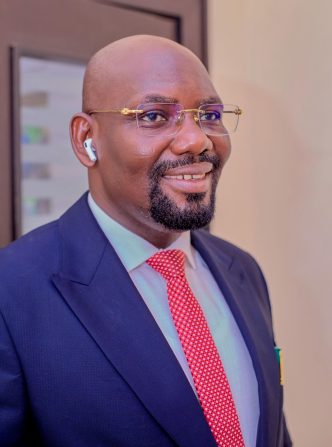
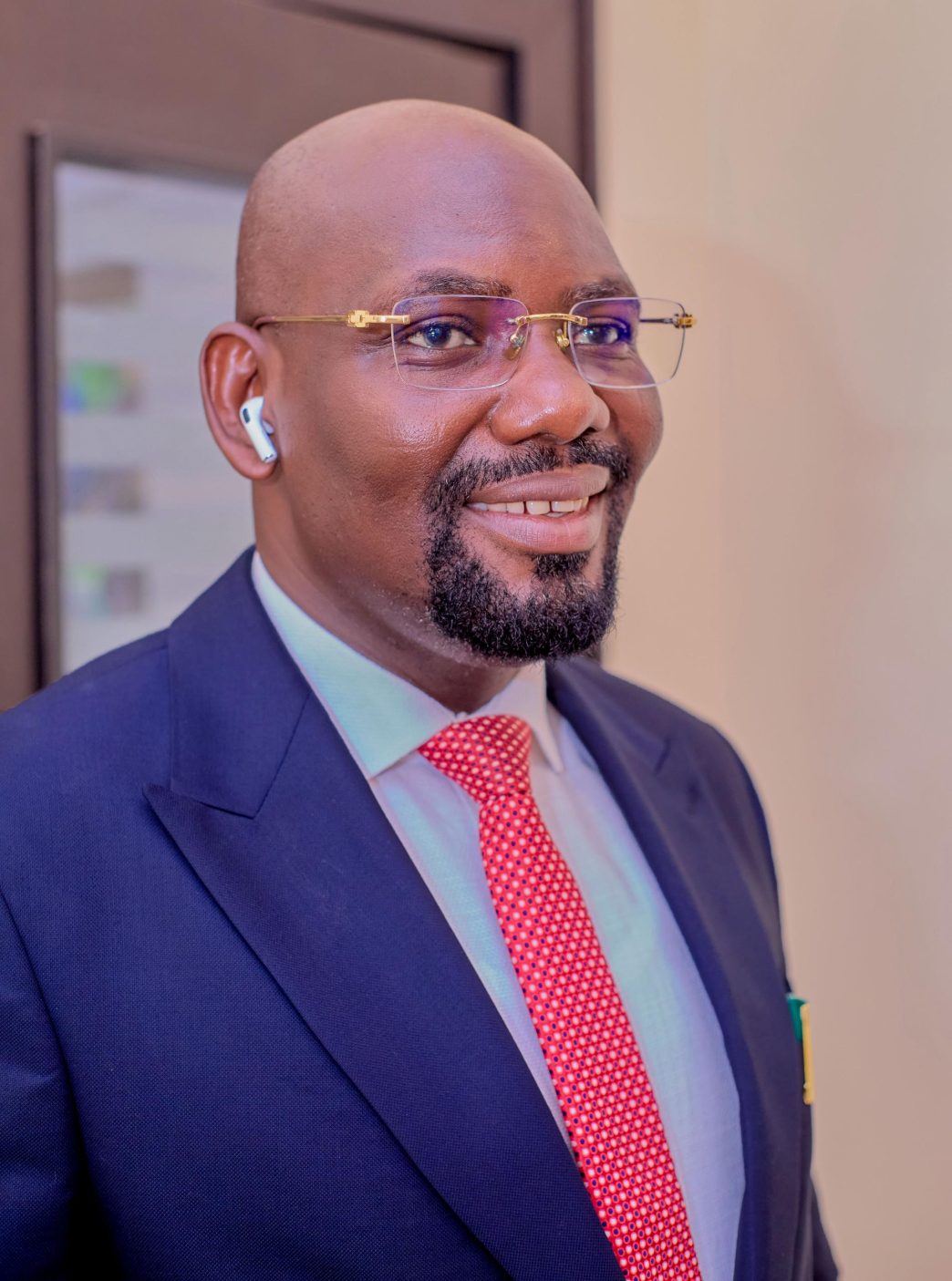
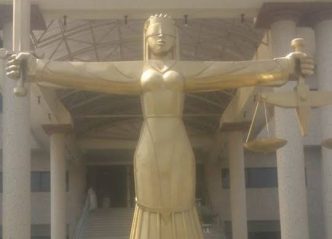

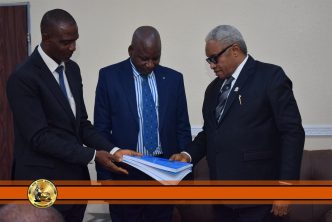
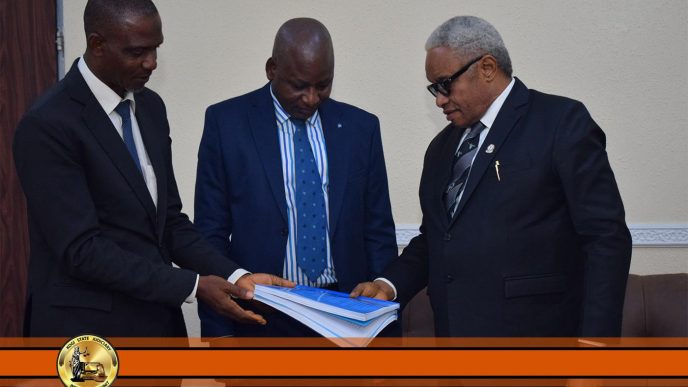
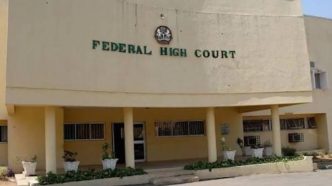
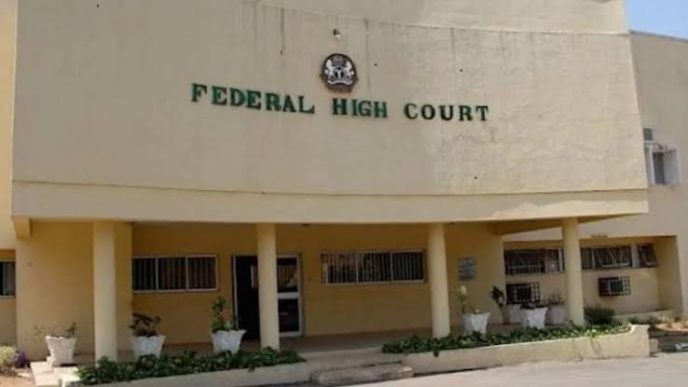
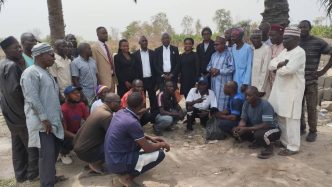
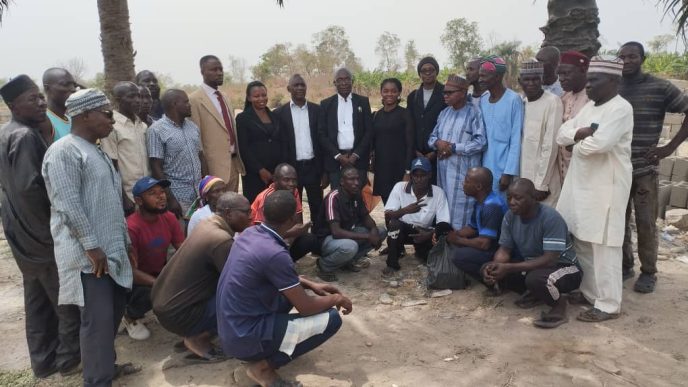
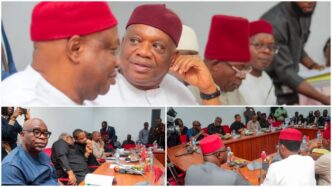
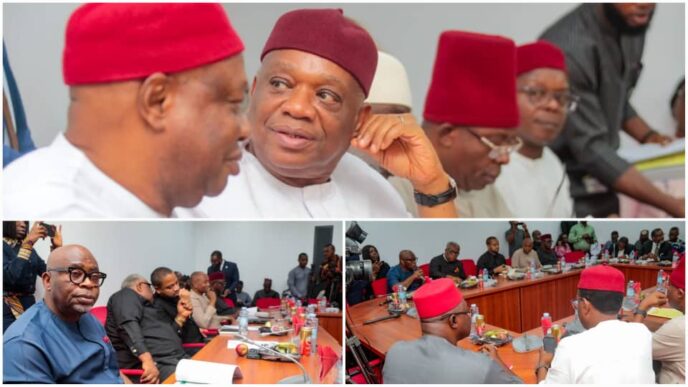

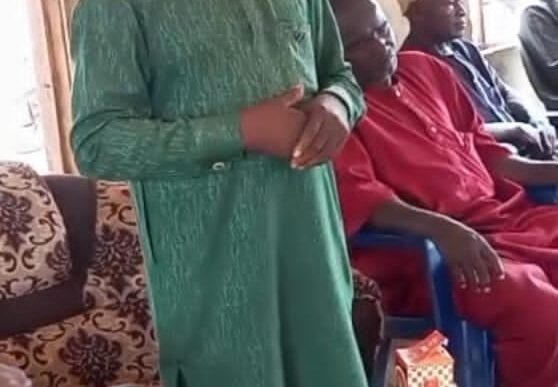
GIPHY App Key not set. Please check settings